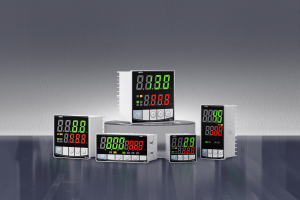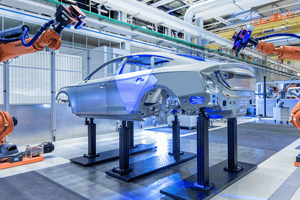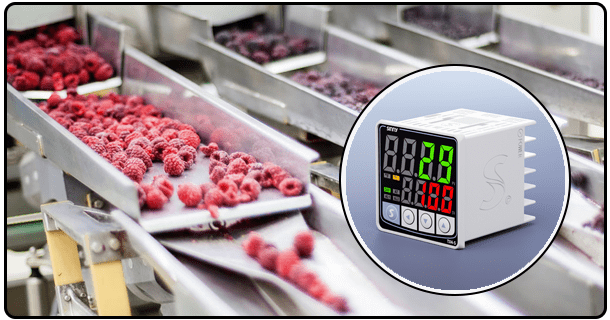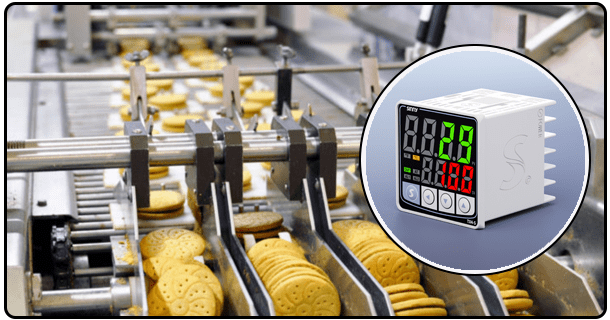Benefits of Implementing a Temperature Control System: Enhancing Quality, Efficiency, and Safety
Unlearn the advantages of installing a temperature control system and how these systems improve product quality, energy efficiency, safety, and operational efficiencies across industries.
1. Introduction
Temperature control systems play a vital role across industries, assuring processes, products, and environments stay at optimal conditions. Designed to monitor and regulate the temperature within specific ranges for consistent results and increased stability and consistency for their targets, temperature controls cannot be understated in their importance in product quality, energy consumption reductions, safety enhancement, and operational efficiencies. This article outlines its numerous advantages, so we'd like to highlight their relevance across different fields and industries.
2. Improved Product Quality
Maintaining Consistency in Manufacturing:
Maintaining precise temperatures is crucial for ensuring uniform product quality. In industries such as food and beverage, pharmaceuticals, and electronics, temperature control systems help maintain the consistency of products by preventing temperature fluctuations that could affect their properties. For instance, in the food industry, precise temperature control ensures that products are cooked or stored at the right temperatures, preserving their taste, texture, and nutritional value. Similarly, in pharmaceutical manufacturing, maintaining the correct temperature during production and storage is vital to ensure the efficacy and safety of medications.
Reduction in Defects:
Temperature-related defects can significantly impact product reliability and customer satisfaction, but by employing an effective temperature control system, manufacturers can minimize these defects, leading to higher-quality products. For instance, precise solder temperature regulation helps avoid cold solder joints and thermal stress issues that compromise electronic components' performance and lifespan, further enhancing quality while decreasing waste/rework and saving overall costs through reduced waste/rework processes.
3. Energy Efficient
Optimized Energy Usage:
Temperature control systems are designed to maximize energy use by maintaining temperatures within specified parameters and thus limiting unnecessary heating or cooling, leading to significant cost savings. Advanced temperature controls boast energy-saving technologies like variable speed drives and smart thermostats, which optimize operations based on real-time temperature data, helping ensure these systems operate only when necessary, thus cutting wasteful consumption significantly.
Cost Savings:
Energy conservation has substantial financial advantages for businesses of all types and sizes, from cutting utility costs and saving energy costs in the short term through offsetting initial costs with longer-term cost savings in energy consumption and carbon emission. Energy-efficient temperature controls contribute to lower carbon footprint, helping organizations advance sustainability initiatives and build their eco-cons.
4. Safety and Compliance Observances
Regulation Compliance:
Manufacturing companies face strict industry standards and regulations, making compliance essential. Temperature control systems play a pivotal role in upholding this compliance by maintaining temperature conditions required for various processes - for instance, pharmaceutical production/storage environments regulated by bodies like FDA/EMA have stringent temperature guidelines that need to be observed during their processes and storage, so having one installed ensures manufacturers adhere to these rules without incurring fines while upholding safety and efficacy of products manufactured.
Enhance Safety:
Temperature control systems also increase safety by protecting employees and equipment against overheating or other temperature-related dangers, such as fires or explosions caused by unregulated temperatures in chemical manufacturing or food processing industries. Uncontrolled temperatures may lead to serious risks like fires or explosions as well as toxic releases into the atmosphere if left unchecked - risks which temperature control systems help mitigate by maintaining stable temperatures that protect both employees and equipment from fire, explosion, or toxic release; protecting both workers as well as equipment through maintaining stable temperatures so ensuring maximum protection both employees from harm as well as downtime costs by protecting both sides against accidents as well.
5. Operational Efficiency
Reduce Downtime:
Temperature control systems enhance operational efficiency by preventing equipment breakdown, decreasing downtime, and keeping temperatures consistent, thus helping ensure the smooth running of machinery while reducing repair and production delays. Temperature controls help protect production by providing constant temperature levels; by doing this, they lower maintenance costs significantly while simultaneously increasing productivity and efficiency and lowering maintenance expenses, resulting in greater productivity, efficiency, and reduced breakdown risks leading to increased productivity, efficiency and lower repair bills, resulting in overall improved productivity efficiency and reduced operational expenses.
Improved Process Control:
Temperature control systems provide more precise and consistent operations in manufacturing processes, especially those that involve temperature fluctuations, which could have severe ramifications for results - this is particularly crucial during complex and sensitive operations such as semiconductor fabrication where even minor temperature variations could have significant ramifications on quality and performance of final product. Improved process control also enables companies to optimize operations more effectively, decreasing waste and increasing yield.
6. Environmental Impact
Sustainability:
Implementation of temperature control systems contributes to sustainability by lowering industrial operations' carbon footprints. Energy efficient temperature controls save on costs while supporting environmental efforts by conserving energy use, cutting greenhouse gas emissions, and supporting efforts toward protecting natural environments. In addition, maintaining optimal temperatures ensures that spoilage or waste occurs as little as possible, leading to resource conservation efforts.
Waste Reduction:
Precise temperature control helps reduce waste by ensuring products are manufactured and stored under optimal conditions, decreasing defects and spoilage to decrease resource waste and maximize resource use efficiency. Temperature control systems play an integral role in keeping quality under control and thus cutting back waste across industries like food and beverages where spoilage losses may cause significant losses; temperature-based systems play an integral role in maintaining product quality while cutting waste significantly.
7. Emerging Trends and Innovations
Developments in Technology:
Advancements in technology continue to expand the capabilities of temperature control systems. Wireless sensors, advanced control algorithms and machine learning innovations such as improving precision and reliability allow more accurate monitoring and management of temperature-sensitive processes.
Integration With Smart Technologies:
Temperature control systems integrated with advanced technologies like the Internet of Things (IoT) and artificial intelligence (AI) are revolutionizing industrial practices. IoT-enabled temperature controls offer real-time monitoring and data analysis to allow predictive maintenance, reduce risks associated with equipment failure, and optimize settingsbased on historical information and real-time conditions to enhance efficiency and improve performance.
8. Conclusion
In summary, temperature control systems offer multiple benefits across industries. From improving product quality and energy efficiency, to meeting safety regulations and complying with them - temperature control systems play a vital role in modern manufacturing operations by minimizing downtime, process control issues, and environmental impact - leading to operational efficiencies and sustainability benefits that contribute towards operational efficiencies as technology progresses bringing with it even more significant innovations for industrial businesses.
- Common Issues and Solutions in Temperature Control Systems: An In-depth Guide
- What Is a Temperature Controller: Types, Sensors, Outputs and Applications























